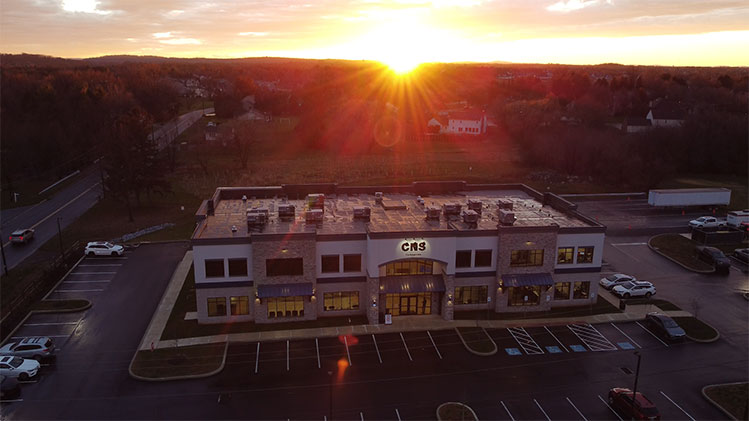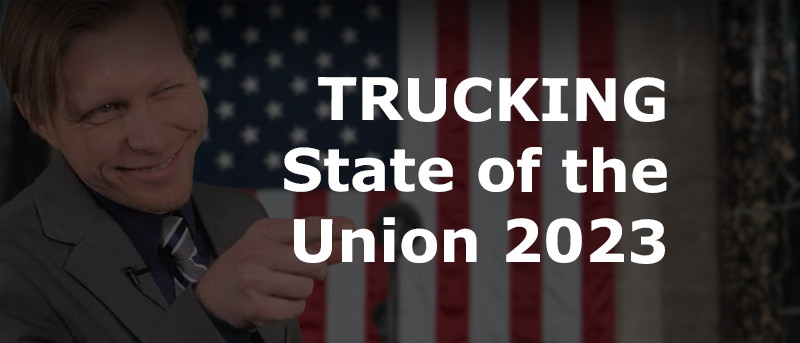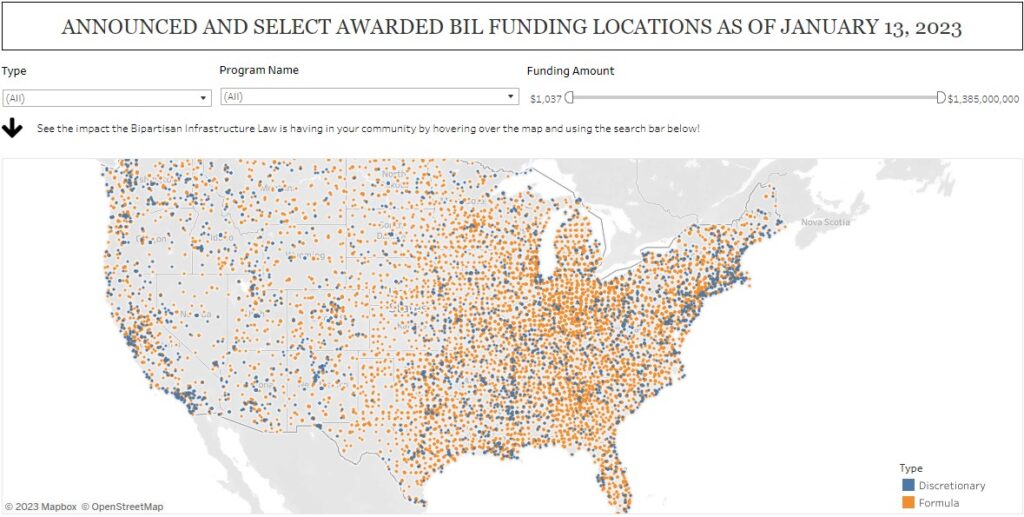Furry Friends Cause Trucking Border Delays At Canadian Border
To prevent reintroduction of rabies carried by dogs into the United States, new CDC regulations require proof of healthy pets at border crossing. Truckers who
We are a team of DOT Compliance and Licensing Professionals helping trucking and transportation companies remain safe, compliant, and profitable.
CNS or Compliance Navigation Specialists is DOT Compliance company that assists trucking and transportation companies remain DOT Compliant. We are part of a network of companies, CNS Companies, specializing in services related to the transportation, manufacturing, construction, service, education and medical industries.

A full-scale DOT Compliance Program managing a long haul carrier’s safety, compliance, licensing and more.
Learn more >>>
A DOT Compliance Program that keeps motor carriers compliant with the 6 Basic DOT Regulations required of all carriers.
Learn more >>>
Our Short-Haul/Construction Program is a full-scale program designed for private carriers that do not haul for-hire.
Learn more >>>
Our most comprehensive DOT Compliance Program, operating as your company’s off-site Safety Director or assisting your current safety personnel.
Learn more >>>
Our Non-CDL Program is a full-scale program managing safety, compliance, licensing and more for moving companies, couriers, landscapers, or any company subject to DOT regulations and does not employ CDL drivers.
Learn more >>>
Our DOT Audit Services cover a number of different types of DOT Audits that new and existing carriers will be subject to.
Our DOT Driver Services help trucking companies and carriers to stay compliant as they grow and hire more drivers.
Our DOT Vehicle Services focus on ensuring your vehicles are compliant with DOT Regulations, which is just as important as your drivers.
Our DOT Services for Special Carriers focus on companies outside of the typical motor carrier, like HAZMAT, Passenger and Bus Carriers.
CNS is part of a group of companies that offer other necessary services for the trucking and transportation industry, such as Commercial Trucking Insurance, CDL Training, Online Training Course, and even Healthcare.
Our DOT Licensing Services will cover you whether you are an existing company or just starting a trucking company. Our DOT Licensing Specialists can help you get up and running and in days with your DOT number, MC Authority, EIN, UCR, IFTA, 2290 HVUT, Fuel Taxes and can even set you up to get your Commercial Driver's License (CDL) with CNS Driver Training Center.
Our DOT Licensing Specialists will help you with every aspect of starting a trucking company. All you need to do is choose a name for your trucking company.
You will need to ensure your DOT Number, MC Authority, Vehicle Registration, etc. is all set up properly when you start your trucking business.
Our Licensing Specialists can help with all aspects of filing and renewing licenses, fuel taxes, etc.
CNS is part of a group of companies that offer other necessary services for the trucking and transportation industry, such as Commercial Trucking Insurance, CDL Training, Online Training Course, and even Healthcare.
To prevent reintroduction of rabies carried by dogs into the United States, new CDC regulations require proof of healthy pets at border crossing. Truckers who
CNS or Compliance Navigation Specialists is DOT Compliance company that assists trucking and transportation companies remain DOT Compliant. We are part of a network of companies, CNS Companies, specializing in services related to the transportation, manufacturing, construction, service, education and medical industries.
CNS Companies is a network of companies specializing in services related to the transportation, manufacturing, construction, service, education and medical industries. Our DOT Compliance division is handled by Compliance Navigation Specialists, CNS Insurance handles Commercial Truck Insurance, CDL training is managed by the CNS Driver Training Center and healthcare is managed by CNS Occupational Medicine.
We are a team of DOT Compliance and Licensing Professionals helping trucking and transportation companies remain safe, compliant, and profitable.
CNS or Compliance Navigation Specialists is DOT Compliance company that assists trucking and transportation companies remain DOT Compliant. We are part of a network of companies, CNS Companies, specializing in services related to the transportation, manufacturing, construction, service, education and medical industries.

A full-scale DOT Compliance Program managing a long haul carrier’s safety, compliance, licensing and more.
Learn more >>>
A DOT Compliance Program that keeps motor carriers compliant with the 6 Basic DOT Regulations required of all carriers.
Learn more >>>
Our Short-Haul/Construction Program is a full-scale program designed for private carriers that do not haul for-hire.
Learn more >>>
Our most comprehensive DOT Compliance Program, operating as your company’s off-site Safety Director or assisting your current safety personnel.
Learn more >>>
Our Non-CDL Program is a full-scale program managing safety, compliance, licensing and more for moving companies, couriers, landscapers, or any company subject to DOT regulations and does not employ CDL drivers.
Learn more >>>
Our DOT Audit Services cover a number of different types of DOT Audits that new and existing carriers will be subject to.
Our DOT Driver Services help trucking companies and carriers to stay compliant as they grow and hire more drivers.
Our DOT Vehicle Services focus on ensuring your vehicles are compliant with DOT Regulations, which is just as important as your drivers.
Our DOT Services for Special Carriers focus on companies outside of the typical motor carrier, like HAZMAT, Passenger and Bus Carriers.
CNS is part of a group of companies that offer other necessary services for the trucking and transportation industry, such as Commercial Trucking Insurance, CDL Training, Online Training Course, and even Healthcare.
Our DOT Licensing Services will cover you whether you are an existing company or just starting a trucking company. Our DOT Licensing Specialists can help you get up and running and in days with your DOT number, MC Authority, EIN, UCR, IFTA, 2290 HVUT, Fuel Taxes and can even set you up to get your Commercial Driver's License (CDL) with CNS Driver Training Center.
Our DOT Licensing Specialists will help you with every aspect of starting a trucking company. All you need to do is choose a name for your trucking company.
You will need to ensure your DOT Number, MC Authority, Vehicle Registration, etc. is all set up properly when you start your trucking business.
Our Licensing Specialists can help with all aspects of filing and renewing licenses, fuel taxes, etc.
CNS is part of a group of companies that offer other necessary services for the trucking and transportation industry, such as Commercial Trucking Insurance, CDL Training, Online Training Course, and even Healthcare.
To prevent reintroduction of rabies carried by dogs into the United States, new CDC regulations require proof of healthy pets at border crossing. Truckers who
CNS or Compliance Navigation Specialists is DOT Compliance company that assists trucking and transportation companies remain DOT Compliant. We are part of a network of companies, CNS Companies, specializing in services related to the transportation, manufacturing, construction, service, education and medical industries.
CNS Companies is a network of companies specializing in services related to the transportation, manufacturing, construction, service, education and medical industries. Our DOT Compliance division is handled by Compliance Navigation Specialists, CNS Insurance handles Commercial Truck Insurance, CDL training is managed by the CNS Driver Training Center and healthcare is managed by CNS Occupational Medicine.

What can the trucking industry take away from the 2023 State of the Union?
Honestly, more of the same.
President Biden said many times in his speech that we need to “Finish the Job”.
For the trucking industry, this means finishing the roll-out of the infrastructure bill, CHIPS bill, and the inflation reduction act that he already passed since this congress is unlikely to pass a lot of new bills.
To make this easy, I broke this down in 5 segments: Manufacturing, Infrastructure, EVs, Taxes, and Logistics.
Let’s see what the president said, where we are at now, and what is to come in these five areas.
“Semiconductors, small computer chips the size of a fingerprint that power everything from cellphones to automobiles and so much more. These chips were invented in America. Let’s get that straight. They were invented in America. And we used to make 40 percent of the world’s chips. In the last several decades, we lost our edge. We’re down to only producing 10 percent.”
“That’s why — that’s why we came together to pass the bipartisan CHIPS and Science Act. Folks, I know I’ve been criticized for saying this, but I’m not changing my view. We’re going to make sure the supply chain for America begins in America. The supply chain begins in America.”
President Biden, State of the Union 2023
The CHIPS Act was signed into law on August 9, 2022. It is designed to boost US competitiveness, innovation, and national security.
So how does this affect the trucking industry?
Well, among other things, the CHIPS Act directs $52.7 billion for semiconductor manufacturing, research & development, and workforce development.
According to President Biden, we’ve already created 800,000 new manufacturing jobs before the law kicked in.
Given the scale of investment required, building new semiconductor fabrication plants, or FABs, will take more than government funding. Private investment is needed too.
The CHIPS Act is expected to create hundreds of thousands of new jobs across the country from companies that have announced more than $300 billion in investment in American manufacturing over the next few years.
This means there will be many construction projects to build these FABs and more logistics distribution when they are finally up and running.
However, probably one of the most important lines in the speech was how Biden wants to build these new construction projects.
“Tonight, I’m announcing new standards to require all construction materials used in federal infrastructure projects to be made in America. Made in America. I mean it. Lumber, glass, drywall, fiber-optic cable. And on my watch, American roads, bridges and American highways are going to be made with American products as well.”
President Biden, State of the Union 2023
This is great for local manufacturing, construction, and freight across the US.

“But to maintain the strongest economy in the world, we need the best infrastructure in the world. And folks, as you all know, we used to be No. 1 in the world in infrastructure. We’ve sunk to 13th in the world. The United States of America — 13th in the world in infrastructure, modern infrastructure.
“But now we’re coming back because we came together and passed the bipartisan infrastructure law, the largest investment in infrastructure since President Eisenhower’s Interstate Highway System.”
“And folks, already, we’ve funded over 20,000 projects, including major airports from Boston to Atlanta to Portland. Projects that are going to put thousands of people to work rebuilding our highways, our bridges, our railroads, our tunnels, ports, airports, clean water, high-speed internet all across America. Urban, rural, tribal.”
President Biden, State of the Union 2023
Again, when we look at how the 2021 Infrastructure Investment and Jobs Act will affect the trucking industry, we see a lot of mega projects.
For the trucking industry, the initiatives include:
These projects will not only include the new standards to require all construction materials used in federal infrastructure projects to be made in America, but these projects should help improve freight bottlenecks.
For example, there are projects like the Brent Spence Bridge in Kentucky over the Ohio River. The Brent Spence Bridge is currently the second worst truck bottleneck in the nation and carries more than $400 billion in freight per year over the Ohio River.
The project will add a second span west of the original bridge for use by local traffic, alleviating congestion on Interstates 71 and 75 crossing the Ohio River.
Additionally, new lanes will be added to a five-mile stretch of Kentucky highway and a one-mile piece of the Ohio highway approaching the bridge. All of this with promises of zero tolls to be added.
Some work is expected to begin as early as March with major construction starting in November 2023. Completion is slated for 2029.
Moving forward, the Deputy Transportation Secretary, Polly Trottenberg, said that “over the next four years we will be able to fund construction for the pipeline of shovel ready projects we are creating through Bridge Planning Grants.”
This is available for bridges with total eligible project costs over $100 million, with minimum grant awards of $50 million, and maximum grant awards of 50 percent of the total eligible project costs.
“We’re going to build 500,000 electric vehicle charging stations installed across the country by tens of thousands of IBEW workers. And we’re helping families save more than $1,000 a year with tax credits to purchase electric vehicles and efficient appliances, energy-efficient appliances.”
President Biden, State of the Union 2023
The transition to Electric Vehicles, from cars, trucks, and semis, is in its infancy. But Biden is expecting to invest $7.5 billion to grow EV charging stations from 100,000 today to over 500,000 by 2030.
But the funding of this gets tricky.
The bipartisan legislation approved by Congress ended up providing just half of the $15 billion that Biden had envisioned to fulfill a campaign promise of 500,000 charging stations by the end of the decade.
President Biden’s Build Back Better proposal aimed to fill the gap by adding back billions to pay for charging stations. But the bill died due to cost.
Administration officials now say the infrastructure law will help “pave” the way for up to 500,000 charging outlets by 2030. And they say private investments could help fill the gap.
The $5 billion in federal money over five years relies on cooperation from sprawling rural communities in the U.S., which are less likely to own EVs due to their typically higher price. Regardless, states are expected to start construction as early as fall.
The DOT is also working on the sixth round of Alternative Fuel Corridors designations.
This program, created under the Fixing America’s Surface Transportation (FAST) Act in 2015, recognizes highway segments that have infrastructure plans to allow travel on alternative fuels, including electricity.
In the end, we will see what comes from this funding.
“Pass my proposal for the billionaire minimum tax. You know, there’s a thousand billionaires in America. It’s up from about 600 at the beginning of my term. But no billionaire should be paying a lower tax rate than a schoolteacher or a firefighter. I mean it.”
“Have you noticed Big Oil just reported its profits? Record profits. Last year, they made $200 billion in the midst of a global energy crisis. I think it’s outrageous. That’s why I propose we quadruple the tax on corporate stock buybacks and encourage long-term investments.”
“Instead of cutting the number of audits for wealthy taxpayers, I just signed a law to reduce the deficit by $114 billion by cracking down on wealthy tax cheats. That’s being fiscally responsible.”
President Biden, State of the Union 2023
Where do we begin with Biden’s tax agenda?
Well, the president wants:
Again, only time will tell to see how these roll through the trucking industry and into your pocket.
“Last year I cracked down, with the help of many of you, on foreign shipping companies that were making you pay higher prices for every good coming into the country. I signed a bipartisan bill that cut shipping costs by 90 percent, helping American farmers, businessmen and consumers.”
President Biden, State of the Union 2023
Okay, it is time to fact check this claim.
Really, this is government officials bragging about something out of their control.
Just as much of the “global inflation surge” had little to do with Biden’s policies, his claim of slashing shipping costs by 90 percent through a bipartisan bill overstates his influence over supply chains normalizing.
Regardless, DOT launched the Trucking Action Plan last year with hopes to increase the supply of truck drivers by:
Will this help the industry’s driver shortage of qualified drivers? Well, as I have said, only time will tell.
If these bills get passed, there will be a boom in trucking jobs and freight demand, as well as a rise in new venture trucking startups.
This means carriers will need to smoothly manage the compliance requirements in DQ files, ELD management, drug testing, and more.
At CNS, our DOT Compliance Programs focus on Proactive Safety Management (PSM),a mindset that will ensure your fleet’s safety and compliance is always in order and ahead of the FMCSA.
Our PSM Motor Carrier Program includes:

EPA’s new truck emission standards will require 25% of new sleeper-cab tractors to be zero-tailpipe-emission trucks by 2032. On March 29, 2024, the U.S. Environmental

Did you know that there have been more than 3.4 million brakes inspected since the program’s inception in 1998? As we prepare for CVSA’s Brake

CVSA scheduled Brake Safety Week from Aug. 25-31 with the focus of this year’s inspections around the condition of brake linings and pads. After last year’s strange

The passage of Prop. 22 saved Uber, Lyft, and other gig workers from AB5, spending more than $200 million to write their own labor law…
Our DOT Compliance Programs ensure it is your top priority and keeps your business running.
Receive the latest transportation and trucking industry information about FMCSA and DOT Audits, Regulations, etc.

EPA’s new truck emission standards will require 25% of new sleeper-cab tractors to be zero-tailpipe-emission trucks by 2032. On March 29, 2024, the U.S. Environmental

Did you know that there have been more than 3.4 million brakes inspected since the program’s inception in 1998? As we prepare for CVSA’s Brake

CVSA scheduled Brake Safety Week from Aug. 25-31 with the focus of this year’s inspections around the condition of brake linings and pads. After last year’s strange
Join our monthly newsletter and stay up-to-date on trucking industry news and receive important compliance and licensing tips.
Join our monthly newsletter and stay up-to-date on trucking industry news and receive important compliance and licensing tips.